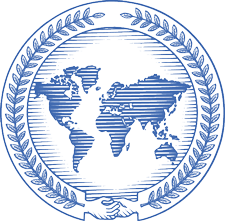Washington is a terrific place to study social enterprise. It is a city with an abundance of social enterprises, strongly supported by a vibrant and growing community of social entrepreneurs.
It starts at the top. One of the first things President Obama did when he took office was to create a White House Office of Social Innovation.
This was followed-up by the launch of a national Social Innovation Fund
DC is a very international city, home to embassies from many of the world’s countries as well as several large multilateral and regional development agencies.
USAID has created a new unit called Development Innovation Ventures to promote new thinking and breakthrough innovations in ending poverty.
The World Bank’s Development Marketplace and Inter-American Development Bank are other examples of how this kind of new thinking is penetrating traditional development organizations.
DC’s large base of NGOs are leading this trend in areas such as microfinance, ending child labor and human trafficking, and using entrepreneurship as a path out of poverty.
These activist non-profits are sources of internships and jobs for students and include:
Washington is home to some of the country’s most innovative social enterprises, including hunger and homelessness fighters such as:
Reach founded by an Echoing Green Fellow and frequent guest speaker in our classes has developed an innovative approach to tutoring inner-city school children, one that turns the traditional tutoring model on its head.
City Blossoms teaches children how to create organic urban gardens.
Not all social enterprises are non-profits. Headquartered few miles from our campus are one of the pioneers in socially responsible investing, Calvert Investments, and Honest Tea a mission-driven, fair trade-oriented organic beverage company.
Social Enterprise Infrastructure Organizations that support social enterprise development are also plentiful here.
Ashoka the organization that put social entrepreneurship on everyone’s radar screen is headquartered just across the Potomac River from downtown Washington.
Social Impact 360, another fellowship provider, was founded by local university students to help train undergraduates interested in social entrepreneurship careers.
Other key players in the local infrastructure include:
Shared working spaces for social entrepreneurs who have out-grown Starbucks, but don’t have a budget for downtown rents, are available at places such as:
1776: the off-campus incubator/accelerator we co-sponsor
Offices of some of the leading consulting firms concerned with social innovation are in town also:
Washington DC is becoming a city with an emerging culture of sharing. In addition to the shared workspaces for entrepreneurs to incubate ideas mentioned above:
The Union Kitchen is a collaborative space where food ideas can incubate. Creative chefs share a fully equipped commercial kitchen where they can pilot recipes for the city’s multitude of catering ventures, food trucks, and retail stores.
Meetup groups like Design Thinking DC bring together people from business, design, education, and technology to learn, exchange ideas, and radically collaborate.
Sharing options make Washington an easy city to be car-free.
Zipcar and Car2Go offer short-term rentals to their members. And Capital BikeShare provides members and tourists with bikes in the city and surrounding suburbs.
And if you want to go car-less, but have one to get rid of first, there’s a social enterprise for that. Vehicles For Change picks up unwanted cars, repairs them as needed, and awards them to low-income families in the region, increasing their abilities to find work, attend classes, and spend less time commuting and more taking care of their kids.
An American University professor, Eve Bratman, is taking these ideas one-step further. She’s working with a group to design a collectively owned, cooperatively governed intentional living community called EcoVillage DC.
Social Enterprise in DC is not all work and no play.
The DC social enterprise community abounds with happy hours organized by local chapters of +Acumen, Net Impact, Society for International Development, StartingBloc, and our own students and alumni. Ask our students about their favorites.
